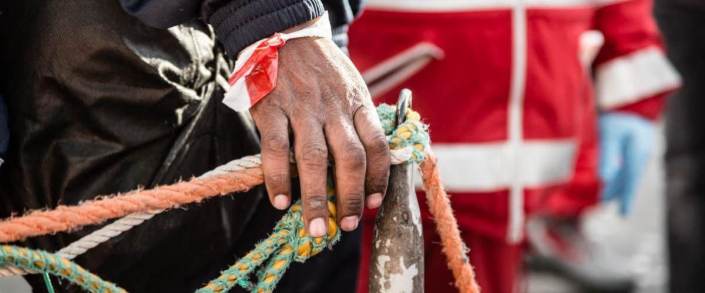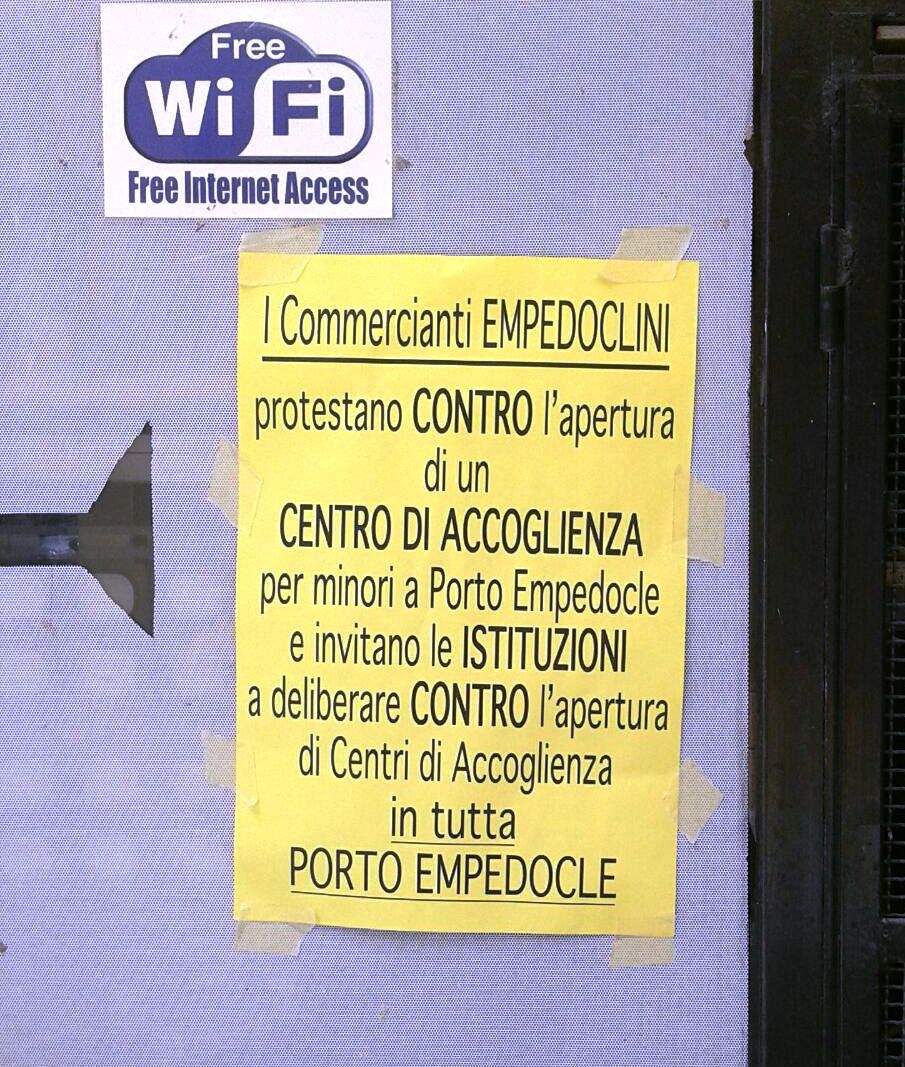Hundreds of immigrants are continuing to arrive, with tales of the many who did not finish the journey.
How long will we carry on merely talking about emergency?
We have reached the end of November and in the last 5 days alone, around a thousand migrants have arrived on the coast of eastern Sicily, mainly to the landing ports of Augusta and Pozzallo. “I didn’t want to leave, but I couldn’t stay”, M tells me. We met in the refugee camp at the Augusta port, just after he disembarked with 318 others. “ I do consider myself a lucky man: only a few days ago I knew of a few refugees, just like myself, that disappeared into the water before the rescuers arrived”. This was the news given on Tuesday by 94 migrants that landed in Augusta on Sunday the 23rd. Ten people disappeared into the water in a vain attempt to reach the freighter that had come to rescue them. It is striking to see the composure with which M talks about the risks he ran, and it should destroy that wall of indifference that counts immigrants only as a number, taking into account these statistics that now reach into the hundreds.
M. started his journey 2 years ago in Benin, a small state in sub-saharan Africa. After completing his degree he set off in search of a better life. But, deprived of a passport, his journey became a daily fight for survival. “ I was called to Libya together with my brother for an important and apparently secure job. I worked as a set designer and thought I had finally found a place where i could have stayed, without risking hunger. But Libya is a living hell. Especially for those with black skin.“ Armed gangs, threats, attacks, beatings and thefts, without any form of authority that could ensure even minimal security. M. lost his brother a few months ago, killed by a group of robbers who wanted his cell phone. Without identification and with no authorities to turn to for protection, he found himself in a prison without walls, or worse, a battlefield. So he decided to leave: “It’s better to die in the sea than die locked up in a cage.”
Together with M, many other young boys, thought that they’d made it; at least for an hour. They arrive from Somalia, Eritrea, sub-saharan Africa and amongst those who make it, they hope to avoid the same long odyssey between centres for children that so many have undertaken before them this summer. Boys are in limbo for months and months, transferred from one reception centre to another, before even being able to start the procedure to request identification. Of the 319 refugees that arrived today, a few will be transferred to Messina, others to the Umberto I di Siracusa centre, but, as the centres for youth in the area are almost full, the boys will probably be sent to Priolo, Caltagirone and Melilli, even though the latter already has more than 100 minors. Months go by, moving from facility to facility but nothing seems to change. Moreover, certain organisations, such as Terres des Hommes, Emergency and MSF, that, in addition to the operators of Praesidium (the charity consisting of UNHCR, IOM, the Italian Red Cross and Save the Children) give medical and psychological support to Asp and to the centre operators, will see their mandates expire shortly, highlighting even more strongly the question of what has been built this year and how they should work together.
“We have been on the run for the past year. In the end we decided to leave through Libya” explains C., a Nigerian who escaped with 4 friends “ I gave my fingerprints because I had no other choice. But I want to know what’s waiting for me there. In Libya there were lots of Syrians that said they didn’t want to stay in Italy and I hope that doesn’t happen to me either”. However, even for Syrians, Italy remains one of the few routes of hope and escape. Many arrived with their families on the morning of the 28th November at the port in Pozzallo, after having been rescued by a flagged Turkish merchant ship, that rescued and bought them to safety amongst the goods containers. There are 251 men, pensioners, women and even young children who were accompanied by the whole crew onto the jetty. Syria, Palestine, Iraq, are among the countries of origin, the names alone refer to destruction and war. But the arrival system is still in a state of emergency, with the warning of a new landing in the port of Augusta this afternoon, not to mention transfers and the constant search for new places in the Welcome Centres.
M.’s story and the current dramatic situation in Libya, Syria and Palestine, highlight how little we know about what happens to those who flee. Or how quickly the public forgets about Somalia, Eritrea, Nigeria, Sudan and all those countries which were turned into mining plants and are referred to now and then and remembered compassionately only in political campaigns. It’s not about theoretical discourses and rhetoric which are ambitiously designed but in doing so miss what is happening closer to home, but rather it is the historical knowledge needed to better understand the situation of those who arrive and those of us who are already here, and realise how serious and necessary it is to certain parties who still speak about “emergency”. Because this week yet again, the most talked about topic between the various parties of the so-called “welcome”, were “state of emergency”, the “lack of places available”. the “hasty preparation of certain operations and the uncertainty of services, saved by the good grace of single partners”. Unacceptable subjects when human lives and rights are concerned and harbingers of further violence towards those who often have no voice to defend themselves. Unacceptable justifications but their untenability acts to show us the need to take hold of our responsibilities.
Lucia Borghi
Borderline Sicilia Onlus
Translation by Charlotte Carew


